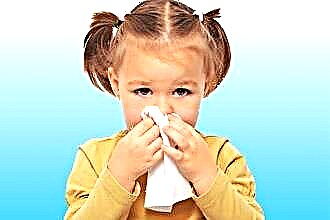Quite many diseases are accompanied by inflammation of the nasal mucosa. Most often, a runny nose is observed with colds and acute respiratory viral infections. However, in addition to rhinorrhea, a person may be bothered by nasal congestion, poor appetite, headache, hyperthermia, body aches, malaise, itchy sensations in the nasal passages, sore throat, and sneezing. Sometimes you can see signs of conjunctivitis (lacrimation, conjunctival hyperemia). How to treat a runny nose? The first step is to establish its cause, because treatment tactics depend on it.
 In the treatment of rhinitis in adults, synthetic and herbal medicines can be used.
In the treatment of rhinitis in adults, synthetic and herbal medicines can be used.
For a cold, adults can be prescribed drugs of both local and systemic action, which makes it possible to choose the most effective medicines for each case of the disease.
The most effective remedy for a cold is a drop or spray with a vasoconstrictor property. Drugs in this group are popular, as they quickly facilitate nasal breathing by reducing tissue edema and the volume of mucous secretions.
The therapeutic effect is achieved by narrowing the blood vessels at the injection site. When the recommended doses and the duration of the treatment course are exceeded, the blood vessels lose their sensitivity to the vasoconstrictor substance.
In this regard, a person has to bury a larger volume of medication for snot in order to achieve the initial result. In addition, the physiological regulation of vascular tone is disrupted, as a result of which the vessels are almost always in an expanded state. As a result, the mucous membrane becomes edematous, and snot flows.
The maximum course of therapy with vasoconstrictor drops is 7 days. Drying of the mucous membrane and the development of tachyphylaxis (addiction) are common adverse reactions.
It is recommended to use vasoconstrictors for the treatment of a runny nose in rare cases when it is necessary to quickly and effectively cure a runny nose and facilitate nasal breathing.
Medicines for the common cold are prescribed when there is a threat of complications:
- otitis media. When the inflammatory process covers the auditory tube, ventilation in the ear cavities is impaired, which is accompanied by the activation of opportunistic flora and the development of otitis media;
- sinusitis. The accumulation of mucous secretions in the paranasal cavities and impaired drainage function lead to the appearance of pus. All this is due to the long-term preservation of edema of the mucous membrane of the nasal passages;
- apnea. A severe runny nose makes nasal breathing difficult, causing snoring and an increased risk of sleep apnea. Short-term cessation of breathing is fraught with hypoxia and organ dysfunction;
- pharyngitis, tracheitis. In winter, deep inhalation of cold air through the mouth can lead to inflammation of the mucous membrane of the lower respiratory tract. In summer, the mucous membrane suffers more from polluted air, which irritates it.
If it flows continuously from the nose, it is advisable to remove the transparent snot before going to bed. To do this, you need to drip a vasoconstrictor in the evening so that during the night a severe runny nose does not interfere with normal sleep. For this purpose, drugs with a long-term therapeutic effect (up to 10 hours) should be chosen. There are several groups of vasoconstrictor agents that make it possible to quickly treat rhinitis and eliminate transparent snot. They differ in the active substance and the duration of the therapeutic effect:
 short-acting (up to 4 hours) - drugs for rhinitis based on naphazoline (Naphtizin, Sanorin) and Tizin;
short-acting (up to 4 hours) - drugs for rhinitis based on naphazoline (Naphtizin, Sanorin) and Tizin;- with an average duration - medicine for the common cold with ximetazoline (up to 8 hours). Xymelin, Xylo Mefa, Meralis, Dlyonos, Otrivin, Galazolin, Rinonorm;
- long-term effect (up to 12 hours) - with oxymetazoline. This is the best remedy for a cold, as it does not require frequent use. Nazivin, Fervex, Knoxprey, Nazol.
Each drug for the common cold for nasal administration has a different concentration, which makes it possible to prescribe them to a child, as well as during pregnancy.
You can quickly cure a severe runny nose with the help of Naphthyzin, but it has many side effects. These include mucosal irritation and addiction. The latter complication develops due to the need for frequent instillation of the nasal passages.
Note that some rhinitis medications retain local vasospasm for much longer than the duration of the therapeutic effect. In other words, transparent snot reappeared, and partial vasospasm still persists. In this regard, the person re-instills the nose, and the spasmodic vessels receive an additional dose of the vasoconstrictor solution, which is an overdose for them.
Of the group of drugs based on naphazoline, Sanorin is considered the safest. Its mild action is due to eucalyptus and vaseline oil, which is part of the medication.
Now let's take a closer look at effective remedies for the common cold.
Lazorin
The main active ingredient is tramazolin. The drug is available in the form of a spray, has a yellowish tint and a eucalyptus smell. It is prescribed for intranasal administration to reduce inflammation of the nasal mucosa.
Lazorin is used for nasal congestion and runny nose in acute form of allergic rhinitis, colds, vasomotor type. As part of complex therapy, it is used for otitis media, sinusitis, which develop as a complication of rhinitis.
Contraindications and adverse reactions
Treatment with Lazorin begins only after familiarization with the contraindications. They include:
- glaucoma;
- intolerance to the components of the drug;
- atrophic type of rhinitis;
- surgical operations in the nasopharyngeal area;
- taking antidepressants;
- first trimester of pregnancy;
- age up to six years.
Caution in treatment should be observed for people with diabetes, pheochromocytoma, prostate hypertrophy, severe diseases of the endocrine system, porphyria.
With the help of Lazorin, inflammation of the nasal mucosa can be quickly reduced, but the risk of systemic side effects must be borne in mind. They are due to the partial penetration of the active substance into the general bloodstream.
An effective cure for the common cold, Lazorin, has some side effects that are aggravated by an overdose. Among the frequent complications of therapy, it is worth highlighting:
- hallucinations;
- drowsiness;
 sedation;
sedation;- dizziness, rapid fatigue;
- burning sensations in the nasal passages;
- allergic reactions;
- sneezing;
- increased congestion;
- change in the psycho-emotional state (irritability);
- headache;
- increased cardiac contractions;
- nausea.
Mode of application
The drug is prescribed one dose three times a day. The duration of the therapeutic course should not exceed 5 days. To cure a runny nose, you need to follow the recommendations for using Lazorin:
- first remove the protective cap;
- press the sprayer several times so that part of the solution enters the air. This is necessary for accurate dosing of the drug;
- insert the tip into the nasal passage, press the spray;
- inhale through the nose;
- the dispenser must be rinsed with water.
The therapeutic effect develops 5 minutes after nasal instillation and lasts up to 10 hours.
Nazol
Nazol is available in the form of a spray. The active substance is oxymetazoline. The solution is odorless and colorless. The therapeutic effect develops after 7 minutes and lasts up to 12 hours.
Nazol not only helps well to cure a runny nose, but moisturize the mucous membrane, protect it from the irritating influence of environmental factors.
The drug can cure a runny nose of allergic, viral origin, including a complicated course. Nazol can also be used to relieve nasal congestion without a runny nose to reduce tissue swelling and ease breathing.
Contraindications
In order to cure a severe runny nose and not harm yourself, it is necessary to take into account the contraindications to the use of the medication. They include:
- individual intolerance to the components of the medicinal solution;
- uncontrolled arterial hypertension;
- pronounced atherosclerotic vascular disease;
- violation of the cardiac rhythm;
- hypertrophy of the prostate;
- pheochromocytoma;
- angina pectoris;
- renal insufficiency;
- severe diseases of the endocrine system;
- atrophic type of rhinitis;
- glaucoma;
- under six years of age;
- taking antidepressants.
To avoid additional infection, it is forbidden to use the medicine bottle for several people.
Dosage
 The drug is dosed using a special nebulizer-dispenser. With one press, a volume of solution equal to one dose enters the nasal passage.
The drug is dosed using a special nebulizer-dispenser. With one press, a volume of solution equal to one dose enters the nasal passage.
It is recommended to use one dose three times (for a child from six years old), as well as two doses - for adults. Usually the course is about 5 days. In the future, you need to instill another vasoconstrictor (plant-based or homeopathic). This will avoid addiction.
Nazol must be used as soon as the mucous membrane of the nasal cavities becomes inflamed and transparent snot appears.
Adverse Reactions
Treatment of snot in adults should be carried out with strict adherence to the recommended doses and duration of the course. With improper therapy, snot in an adult may be accompanied by the appearance of such side effects as:
- baking sensations, tingling, dryness in the nasal passages;
- frequent sneezing;
- severe congestion;
- decreased sensitivity of blood vessels to vasoconstrictor substances, which is called tachyphylaxis or addiction;
- cardiopalmus;
- increased blood pressure;
- angina pectoris;
- irritation, conjunctival hyperemia;
- nausea;
- nasal bleeding;
- tickling in the nasopharynx;
- insomnia;
- capriciousness;
- malaise;
- headache;
- allergy, which is manifested by skin rashes, itching.
Treatment of a viral rhinitis
 How to treat snot of viral genesis and colds? With firm confidence in the viral origin of rhinitis, you can take antiviral medicine in tablets, for example, Arbidol. Thanks to its immunostimulating effect, a severe rhinitis can be cured in 5-7 days.
How to treat snot of viral genesis and colds? With firm confidence in the viral origin of rhinitis, you can take antiviral medicine in tablets, for example, Arbidol. Thanks to its immunostimulating effect, a severe rhinitis can be cured in 5-7 days.
It is necessary to select medicines for the common cold taking into account its cause. If a high temperature is recorded during a runny nose, aches in the body worries, the body may have become infected with viral pathogens.
In the treatment of rhinitis, the clinical effect of Arbidol is to reduce the severity of intoxication, symptoms of the disease, as well as the duration of the viral disease.
The drug will help get rid of rhinitis only if there are no contraindications to taking it and adherence to the therapy regimen. Among the contraindications should be distinguished age up to six years, pregnancy, lactation period, as well as individual intolerance.
The medicine should be drunk half an hour before meals. Treatment can be carried out with capsules with a dose of 100 or 200 mg, which allows you to take Arbidol from the age of six. You can quickly treat a runny nose according to this scheme - 200 mg 4 times a day (for adults), 100 mg for children.
Many drugs for the treatment of the common cold, including Arbidol, can be taken prophylactically, for example, after contact with a sick person or during an epidemic of viral diseases.
The medicine is usually well tolerated. The most common adverse reactions are allergies, tissue swelling and nasal congestion.
Help with allergic rhinitis

Transparent snot that lasts longer than a week is one of the signs of allergic rhinitis. It is necessary to treat a runny nose in adults with the use of systemic or topical antihistamines.
It is recommended to treat a runny nose in an adult with the help of hormonal sprays, for example, Nasonex, as well as drops with antihistamine properties (Tizin Alerji, Allergodil).
How can you reduce the severity of local symptoms, namely nasal congestion and rhinorrhea? What medicine will help cure a runny nose?
It is possible to completely get rid of allergic rhinitis only after eliminating the provoking factor. All medicines refer to symptomatic therapy aimed at alleviating the general condition.
Tizine Alerji has an active ingredient - levocabastine. The spray is contraindicated for up to six years, as well as for hypersensitivity. Caution should be observed in people with renal dysfunction.
The drug is recommended to be used in two doses twice a day. In some cases, it is allowed to increase the number of injections to four per day. When spraying the treatment solution, inhale through the nose.
Among the side effects, it is worth highlighting nausea, malaise, irritability, as well as soreness, irritation, dryness in the nasal passages. In addition, there may be headaches, drowsiness, dizziness, shortness of breath, tachycardia.
Only a doctor will help you choose the best drugs for the treatment of rhinitis. If you want to independently cure the disease, you must first carefully study the instructions, and only then start treatment.

 short-acting (up to 4 hours) - drugs for rhinitis based on naphazoline (Naphtizin, Sanorin) and Tizin;
short-acting (up to 4 hours) - drugs for rhinitis based on naphazoline (Naphtizin, Sanorin) and Tizin; sedation;
sedation;

